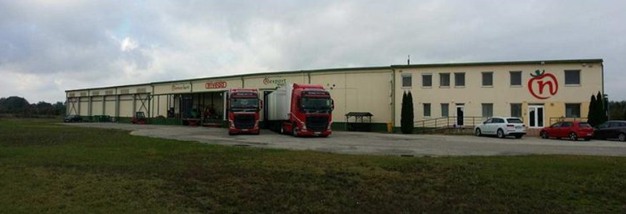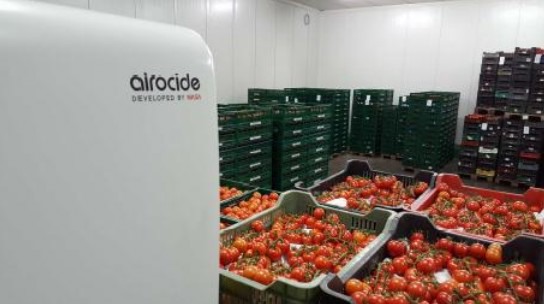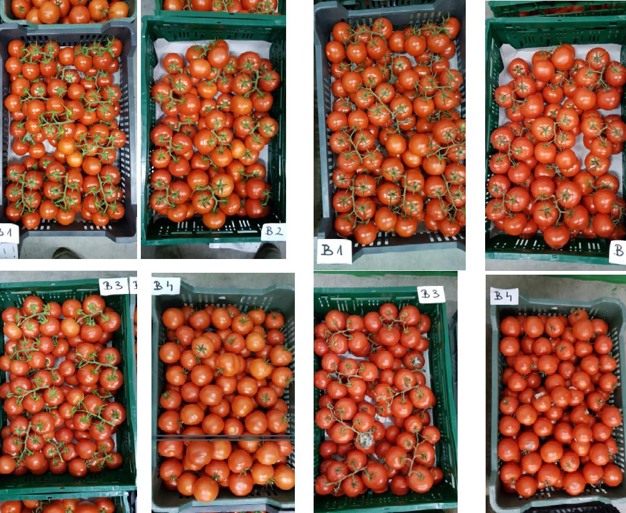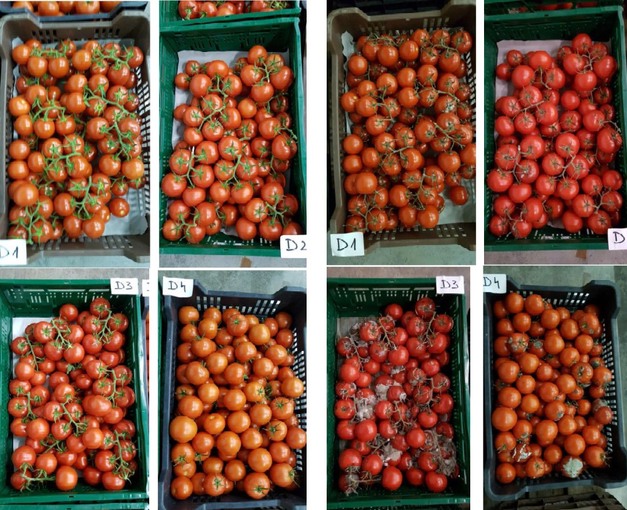The Hungarian company Nemeskert Kft. operates greenhouses encompassing 13 hectares, powered by geothermal energy. With 9 hectares dedicated to tomato cultivation, the company yields an impressive annual harvest of 4,000 to 4,500 metric tons. Additionally, Nemeskert Kft. cultivates secondary products such as green peppers, hot green peppers, cucumber, and lettuce. Since 2014, the company has maintained an audited packaging facility equipped with cooling rooms.

Knowing how much effort they put into growing their tomatoes, the team of Nemeskert also wanted to enhance their tomato preservation process. "We want to maintain the quality and extend the shelf life of our tomatoes, ensuring they reach consumers in optimal condition."
This is where the technique of AiroCide PPT™ Air Purifiers comes in. It has been developed to kill, remove, or eliminate airborne pathogenic and non-pathogenic microorganisms in vegetative and spore states. "The system incorporates technology developed by NASA to get rid of airborne pathogenic and non-pathogenic microorganisms, allergens, odors, and harmful volatile organic compounds (VOCs)," the team shares. "The technology has gained recognition across various industries, including floral and perishable preservation, food safety, and even medical healthcare."
 Airocide in vertical position
Airocide in vertical position
And now up to tomatoes. To assess the efficacy of AiroCide PPT™ Air Purifiers, Nemeskert Kft. conducted a comparative trial within two identical cooling rooms measuring 12 meters by 20 meters and 3 meters in height. Four tomato samples, sourced from different producers, were placed in both cooling rooms. Cold room "B" was equipped with an AiroCide GCS-100 Air Purification System, while cold room "D" featured an ethylene filtration system, with filters replaced seven days prior to the trial.
Throughout the trial, measurements of ethylene gas levels were performed. An analysis conducted at the beginning of the trial indicated that product 4 was selected for further laboratory examination. At the trial's conclusion, additional samples from product 4 were sent to the laboratory for separate analyses, distinguishing between the samples stored in cold rooms "B" and "D."
 Samples from cooling room B, left photos taken on the 1st day of the trial (August 4, 2016) versus August 30, 2016.
Samples from cooling room B, left photos taken on the 1st day of the trial (August 4, 2016) versus August 30, 2016.
 Samples from cooling room D, left photos taken on the 1st day of the trial (August 4, 2016) versus August 30, 2016.
Samples from cooling room D, left photos taken on the 1st day of the trial (August 4, 2016) versus August 30, 2016.
Minimal mold spots
Photographs captured during the trial clearly demonstrate the benefits of the AiroCide PPT™ Air Purifier. In cooling room "B," where the air purification system was active, minimal mold spots were observed, and the tomato stems remained green, devoid of surface mold. Conversely, in cooling room "D," where the ethylene filtration system was utilized, mold growth was evident on the tomato stems. "With this trial, we can highlight the system's inefficiency compared to AiroCide's technology," the team concludes.
"This technology now allows us to keep tomatoes longer and wait for a better market price to sell," the growers share.
AiroCide's technology can be installed in fruit rooms, warehouses, and storages, by farmers, supermarkets, and wholesalers, used in trucks by logistic companies. Each unit consumes less than 4 amps with a power consumption of 390 watts (for the unit that covers a maximum area of up to 1133 m3), which is very important to save on energy costs. AiroCide has shown the best results for blueberries, berries, salads, fresh herbs, asparagus, greens, and other perishable fruits and vegetables.
If you would like to try this technology in your warehouse, send your inquiry to [email protected] with a note that you have seen this on HortiDaily.
For more information:
Fresh Produce Instruments
[email protected]
www.freshproduceinstruments.com
Nemeskert Kft.
H-6762 Sándorfalva Endresz u. 6.
Tel.: +36 30 219 57 00
Tel.: +36 30 9255 655
[email protected]
www.nemeskert.hu
Packaging facility:
Kántor Zoltán
Kistelek
GPS: 46°28.804’; 20°0.130’
[email protected]










